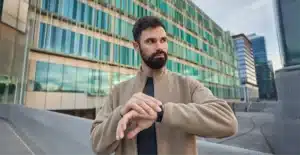Before undergoing any treatment plan for your addiction. It is always benificial to understand your addiction, and the options available. Opioids comprise a wide variety of many different substances.
Let’s take a better look at opioids.
What is an Opioid?
What are Opioids? Opioids are psychoactive drugs that are either derivatives of opiates or have a similar chemical composition. Opioids bind to opioid receptors in the brain, spinal cord, and other areas of the body to reduce pain signals sent to the brain. Opioid medications are prescribed to treat acute pain.
What Drugs are Opioids?
There are four main classifications of opioids. Endogenous opioid peptides, such as endorphins, are produced naturally by the body. Small amounts of morphine are also produced by the body and are included in this class. Opium alkaloids are produced from natural opiates of the opium poppy. These include drugs such as morphine, codeine, and thebaine. Heroin and oxycodone are semi-synthetic opioids that are produced from natural opiates or morphine esters. Methadone and pethidine (Demerol) are fully synthetic opioids.
Developing Opioid Dependence
Opioids promote the release of the neurotransmitter dopamine which produces pleasurable feelings. As the opioids are released from receptors, the euphoric effects of the drug diminish and withdrawal begins. A person is considered to be dependent on opioids when they rely on repeated dosages to feel good or continue use regardless of negative effects. Patients who are prescribed opioids for pain relief should not have their prescriptions changed to Suboxone since it isn’t indicated for pain relief.
Signs of Opiate Addiction
• Developing a tolerance for opioids and requiring larger doses to achieve the same effect
• Using opioids for a longer period or at a larger amount than intended
• Experiencing withdrawals when not taking the drug
• Unsuccessful attempts to decrease the amount of opioids taken
• Large amount of time being spent to acquire, use, or recover from the drug
• Abandoning responsibilities and important activities
• Continuing to use the drug in spite of negative effects
Why Opioid Dependence is a Medical Disorder
Opioid dependence is the result of changes to the structure and functioning of the brain stemming from long term use of the drug. Receptors in the brain become tolerant to the drug after repeated exposure resulting in opioid tolerance and physical dependence.
These changes typically reverse themselves within a few weeks after drug use has ceased. By contrast, the neurological changes associated with long term opioid use tend to persist for an extended period of time. It is these changes that are responsible for the powerful cravings that lead to compulsive drug seeking and use.
The cravings have been found to induce opioid consumption independently from withdrawal symptoms or physical dependence and may persist years after drug use has stopped. It is believed that neurological pathways are altered by the repeated activation of circuits in response to opioids. This leads to the pathways becoming hypersensitive to both opioids environmental cues. As a result, cravings can be triggered by even moderate stimuli.
Behavioral Effects of Opioid Dependence
The cravings and withdrawal symptoms associated with opioid use are so severe that those who attempt to stop using the drug find it extremely difficult to do so. In addition, the craving may drive to commit act they ordinarily would not to obtain more of the drug. Therefore, opiate addictions are medical condition, not a weakness.
Northbound Treatment Services has a nationally recognized and award winning addiction recovery program. Northbound offers a variety of residential and outpatient treatment programs to help patients through the recovery process while remaining productive in society. They understand that no two individuals are the same and offer customized treatment plans to meet each patient’s needs.
Call Northound at (866) 511-2458 or contact us here.
Author
-

President, CEO & Founder at Northbound Treatment Network
Paul Alexander is the CEO, President & Founder of Northbound Treatment Network in Newport Beach, California. He believes wholeheartedly in transformational leadership, organizational health and effective, fully integrated substance use disorder and mental health treatment. With over 27 years of experience in behavioral healthcare, Paul has extensive knowledge of “in vivo” treatment modalities, clinical development, operations, strategy, marketing and financial planning. He has been widely recognized for his development of collegiate-based residential treatment programs for students in recovery and authored a research study at The University of California confirming this modality’s effectiveness.
Paul’s comprehensive professional experience, willingness to innovate, and emphasis on organizational health are vital factors in Northbound’s continued success. Paul received his Certified Addiction Treatment Specialist training at Saddleback College in Mission Viejo, CA, and was awarded Outstanding Alumni Service Award in 2002. Paul holds a Bachelor of Arts degree in Criminology, Law and Society, Summa Cum Laude, from University of California, Irvine, and a Juris Doctorate degree from Loyola Law School of Los Angeles. Paul currently serves on The National Association of Addiction Treatment Providers (NAATP) board. In addition, he serves on The Family Recovery Foundation board and The CarePossible board in Orange County; both organizations are committed to raising funds for family recovery and treatment for former military personnel. Paul is in recovery himself and lives in Orange County with his wife Silvana and his two young sons, Noah and Dean.










